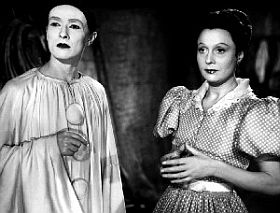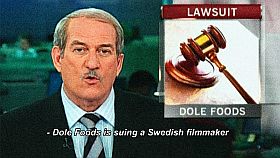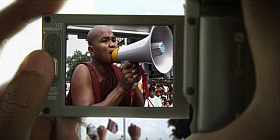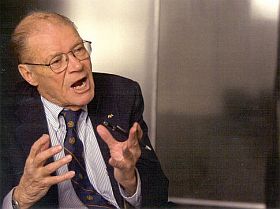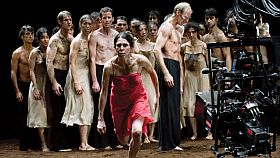Twenty years ago. The fall of the empire, USSR and the communist regimes in the East bloc. Time to look back. And time to use different media to approach the huge overall theme from many angles and with many eye-witnesses involved. Produced by the companies, German Gebrüder Beetz Filmproduktion and French Artline Productions, what was launched yesterday is ”a multimedia event” with a tv-series of 6 x 52 mins., a webformat (also called webdoc) and a book. The book has been out since September 2011, the tv-series will be broadcast January 24, 31 and February 7 (2 parts each evening) on arte and be published on dvd by February 8, by arte that is the main financial locomotive of this big production.
The site is there now and I have used some hours this morning to enjoy it. The build-up is very simple: 30 postcards lead to 30 people born in the USSR or in former East Bloc countries like GDR, Poland, Romania, Czekoslovakia and Hungary. For each person there is a small 3-5 minutes long film based on interviews and archive material with reference to topics that can be studied with more text and sometimes with more archive material. 22 topics are covered like sports, youth, resistance, dictatorship, love, youth etc. There are photos of the 30 protagonists who cover a wide range of backgrounds, not only geographically but also socially. There are an Olympic champion, a zoo keeper, an engineer, a school teacher, a couple of journalists, a counter-intelligence officer, a choir member etc. You can choose language when you surf on the site: English, French, German, Hungarian and Norwegian! The short films are subtitled, no dubbing, thanks for that. It is quite a pleasant, interactive is the word for it, experience to visit this site, take it in bites, and use it in schools for the new generations. It is, as said in the promotion material ”stories from throughout the countries of the former Soviet Union about friendship, passion, rebellion and beliefs, offering unique insight into day-to-day life beyond the Iron Curtain and the dynamic behind the collapse.” Well-done and well conveyed information, anecdotes and personal it is, sometimes fun, sometimes tough to hear and see.
The book: ”was published by C.H. Beck in September 2011.The famous historian and writer György Dalos covers in six chapters the major events of the communist system in Europe between 1975 and 1991 and gives inside view into the everyday-life behind the Iron Curtain.”
The TV-series: that is linked to the book mentioned, has been directed by well-known Russian director Andrei Nekrasov, who has made films on
Litvinenko and Anna Politkovskaya and whose last film, Russian Lessons, dealt with the Russian-Georgian war in 2008, making it dangerous for the director to be in his home country.
The tv-series goes from 1975 to 1991, is told chronologically but the different parts, according to Nekrasov can be seen separately. Here is an excerpt from an interview with the director on the arte/zdf site of ”Farewell Comrades”:
”Zuerst wollte ich die Komplexität dieses untergegangenen Systems zeigen, das weder ganz schwarz noch ganz weiß war, wie alles im Leben, und die ehemalige Sowjetunion von innen heraus zeigen, mit ihrer Atmosphäre, ihren Liedern, ihren Gefühlen, kurz ihrer Kultur. Sie bestand nicht nur aus Ideologie, sondern bildete eine ganz eigene Welt, den Stoff unseres Lebens. Und dann versuchte ich die Verkettung der Ereignisse zu ergründen, die zum Ende der UdSSR führten. Man kann sich die sechs Teile unabhängig voneinander anschauen, auch wenn sie als Ganzes konzipiert sind: in einigen geht es mehr um Geopolitik und bestimmte Gegebenheiten, in anderen stehen gesellschaftliche Probleme im Mittelpunkt. Der letzte Teil untersucht Gorbatschows Rolle beim Moskauer Putsch im August 1991. War Gorbatschow damals ein passiver Komplize, oder leistete er Widerstand? Hatte er verstanden, wohin die von der Perestroika ausgelöste Kettenreaktion führte? Ich enthalte mich des Urteils: Der Zuschauer soll sich selbst seine Meinung bilden. Das gilt für die ganze Reihe.”
http://www.farewellcomrades.com/en/
http://www.arte.tv/fr/Adieu-Camarades-_21-1975-1991/4314104.html





